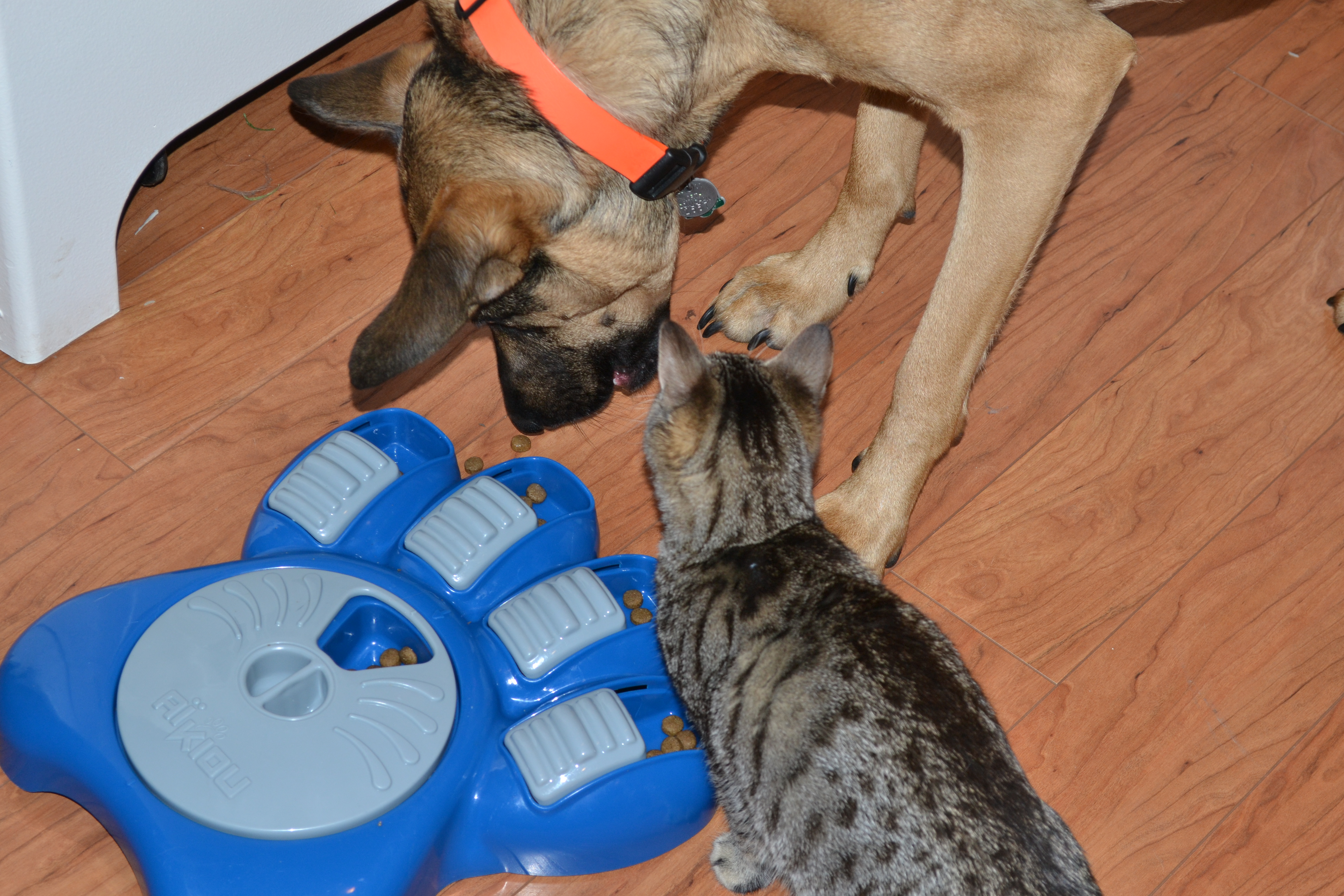 Unfortunately, reactive dogs will take themselves over threshold if you aren’t careful. This usually occurs because it is what the brain has been trained to do if the dog is allowed to continue to practice this behavior for a long period of time. It is also because the brain becomes addicted to the adrenaline hormones that are released when the reaction occurs.
Unfortunately, reactive dogs will take themselves over threshold if you aren’t careful. This usually occurs because it is what the brain has been trained to do if the dog is allowed to continue to practice this behavior for a long period of time. It is also because the brain becomes addicted to the adrenaline hormones that are released when the reaction occurs.
Also known as the fight or flight mechanism, the adrenal glands send out the chemical called epinephrine (an interchangeable term with adrenaline). This neurotransmitter is one of the strongest parts of the sympathetic nervous system.” – EverythingAddiction.com
While this quote comes from a site about human addictions, it’s not a stretch to believe the same things are happening in our canine companions. If your dog can’t help but peek around the corner of the building or watch out the window to see who’s walking down the street, then it may be a sign that he’s become addicted to the adrenaline rush he gets from reacting to his triggers (the animal or object that causes a reaction).
My reactive dog, Loker, is very much like this right now. With the new puppy increasing the stress levels in the home, Loker is more likely to react at usually non-problematic people who are walking by. My busy schedule has also meant a reduction in training sessions for him which is not to his benefit. I’m sure it’s a stress release for him to lose self-control momentarily and just let it all out through some barking. At least, that is my interpretation of his reactions lately.
The best thing to do in a situation where your dog actively seeks out it’s triggers is to continue to manage the situation and “keep calm and carry on.” Continue with the counter conditioning techniques and it may also be to your advantage to check out Behavior Adjustment Training (BAT) to give yourself a tool which will help in case your dog goes over threshold by accident. You can also use a positive interrupter (such as a kissy noise) to redirect their attention to you. Be aware of your dog’s tendencies and be proactive, but know that you aren’t alone!



